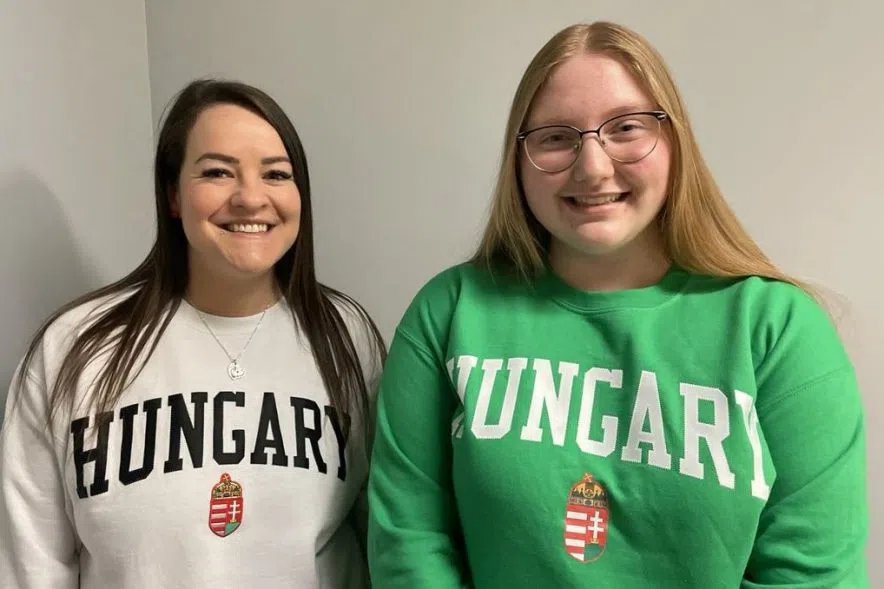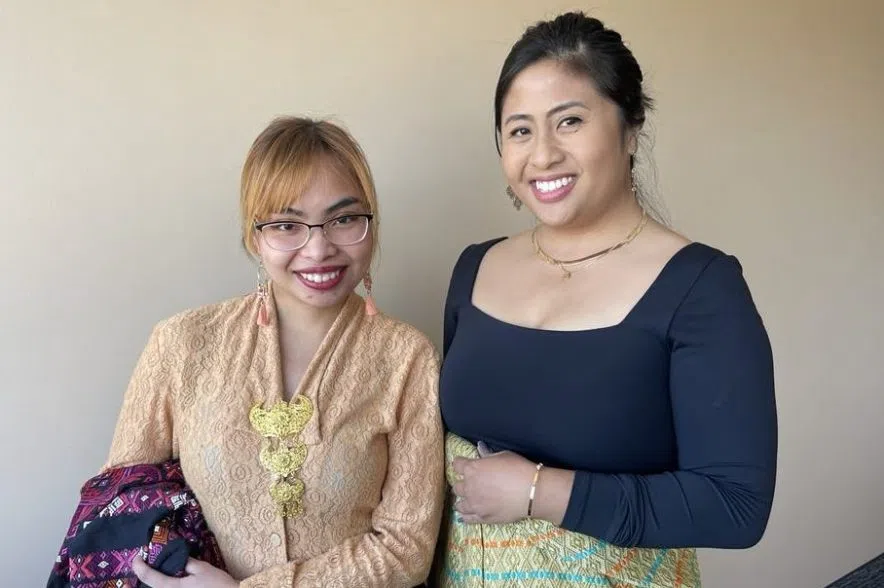Valerie de Sosa and Raiza Ocampo can both agree that it’s the food and entertainment that keep them returning to Mosaic – A Festival of Cultures each year.
“(I) remember the first time attending back in 2013 when I first moved here, and I just thought it was such a stunning festival,” Ocampo said.
She said it’s a “full-circle moment” to celebrate this year’s festival as an ambassador to the Philippine pavilion alongside de Sosa.
Read more:
- A Regina tradition returns: Mosaic festival back in 2023
- New sports bar to take over for YQR Distillery
- Regina police say Air Support Unit assisted in 75 calls in six days
Mosaic – A Festival of Cultures, the longest-running multicultural event in Saskatchewan, is returning for its 55th year.
The inaugural festival was one day, but John Findura, President of the Regina Multicultural Council, said it has grown to three days, running from June 5 to June 7.
“A lot of folks maybe don’t know about how culturally diverse we are, how many cultures we have, and how many different folks (are) from different parts of the world,” he said. “We are truly a cultural hub.”
The event celebrates different cultures and communities by sharing food, performances and traditions hosted at a pavilion.
Patrons’ ticket into the pavilion comes in the form of a specialized “passport.” The passport allows people onto all Regina Transit Buses for the event.
Fifteen pavilions have been listed on this year’s passport:
- First Nations
- Métis
- Spirit of China
- Scottish
- Poltava Ukrainian
- Phillipine
- Latino
- Kyiv
- Italian
- India
- Hispano
- Hellenic
- Chinese (RCCA)
- Austrian
- Balaton Hungarian
The Hungarian pavilion has been a part of the celebration for over 50 years, according to ambassador Meghan Jerkovits.

Meghan Jerkovits and Zypora Petrowsky are ambassadors with the Hungarian pavilion. (Gillian Massie/ 980 CJME)
“My whole family has been around, they’ve all been dancers, and we’ve all danced,” she said. “It’s an ongoing tradition for years.”
Zypora Petrowsky, a first-time youth ambassador for the Hungarian pavilion, has previously spent her time performing the grape harvest dance at the festival.
“It’s very scary, but it’s also very fun,” she said. “I love culture. I love being involved. So I’m excited.”
At the 2024 festival, 18 pavilions were registered. Findura said the African, Polish, and Romanian pavilions were not returning this year.
“To get folks to volunteer, it’s a huge undertaking,” he said. “There are hundreds and hundreds of hours, so you have to commend the 15 that are in this year for their efforts and their volunteering spirit.”
After taking a three-year hiatus due to the pandemic, Findura said the event has recovered well.
“We did good the last two years,” he said. “We’ve recovered beyond belief from the pandemic.”











